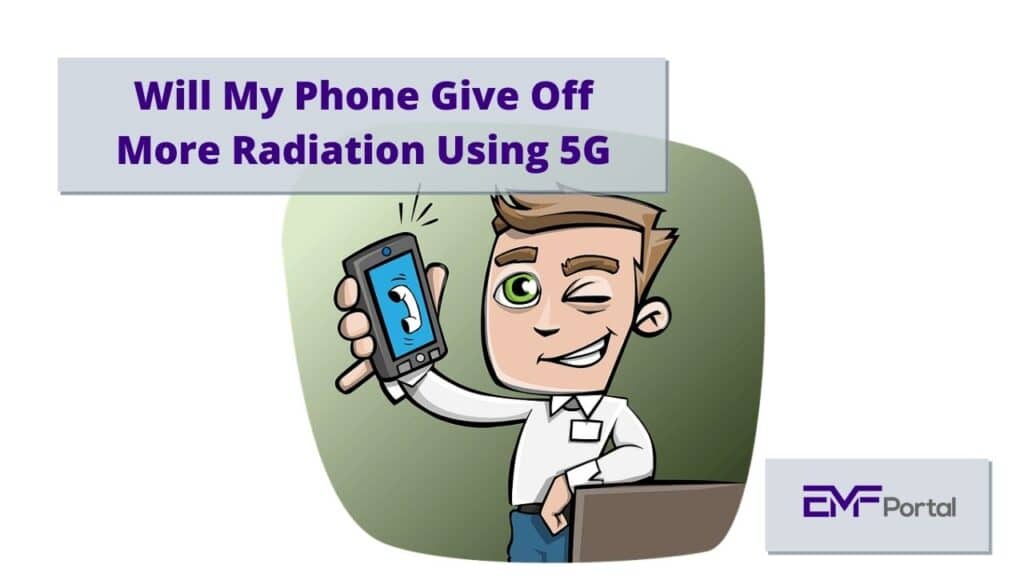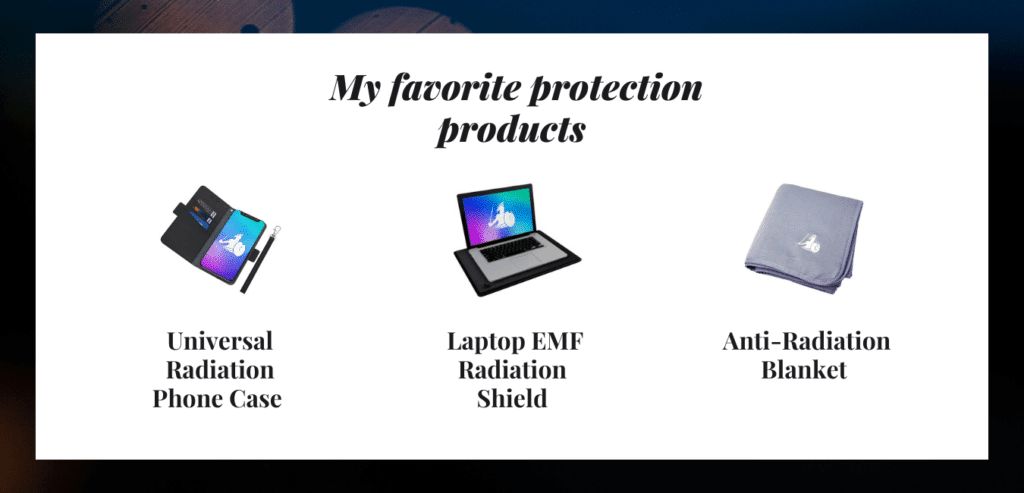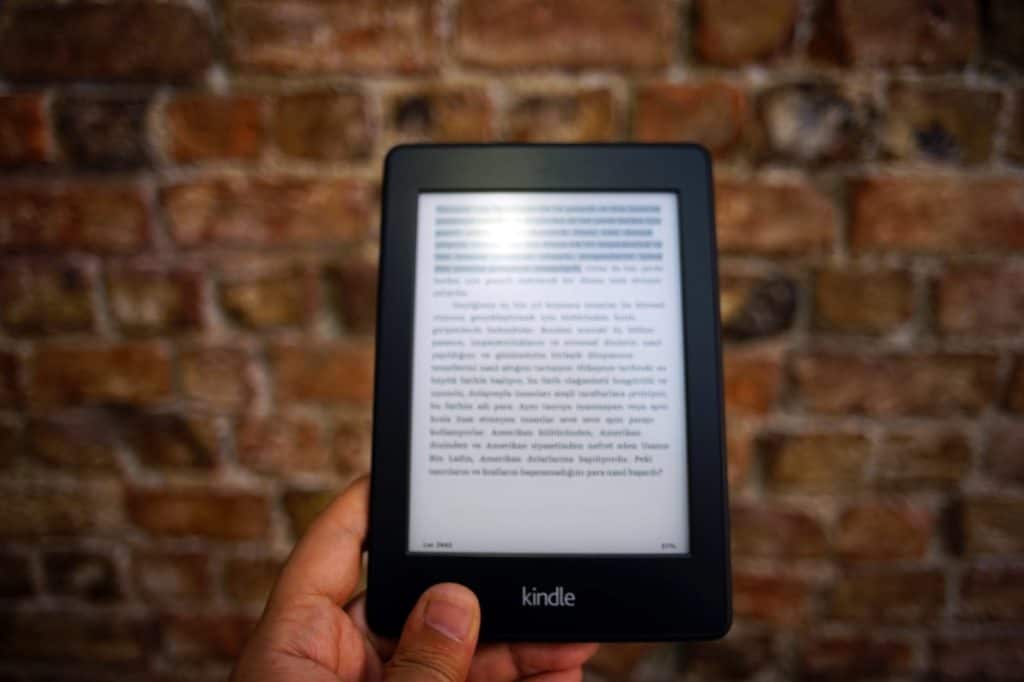
5G is the new hot thing in the market today. The name is an acronym for fifth-generation, indicating it is the fifth generation of telecom internet service. 5G is a massive improvement over its predecessor 4G which is the standard right now.
This new generation of telecom internet promises as much as 100x the speed that 4G offers and a massive bandwidth that can accommodate the growing user base around the world.
However, 5G also produces significantly more radiation and can cause much more harm to our health than 4G.
In this article, we take a look at how 4G and 5G differ, the way we can protect ourselves from this radiation, and most importantly the kind of radiation that your phone gives off while on the 5G network.

| Universal radiation phone case | Check price here |
| Laptop EMF radiation shield | Check price here |
| Anti- Radiation blanket | Check price here |
Does 5G produce more radiation?
5G will typically not produce more radiation than 4G when comparing the total amount of radiation generated, however, 5G uses a higher frequency waveform so it can cause more bodily harm to us if we are directly exposed to it. Your phone wouldn’t give off more radiation.
However, if you were to take an EMF meter and measure the readings, the values would be higher than that of 4G because of the type of waveforms used in 5G.
5G achieves this high speed and massive bandwidth by using these high-frequency waves that were previously untapped. However, there is one significant drawback to using these waves.
Because of the high frequency, the wavelengths are shorter meaning it cannot travel very far on its own. To counter that, telecom operators are using mini-towers at close intervals to boost those fading signals and transmit it further.
4G vs 5G – which is better?
4G is the fourth generation of telecom internet service. It has been the standard for the last decade or so and is backed by a robust telecom infrastructure that ensures guaranteed speeds for every one of its users.
Today about 55% of the world population who use a cellphone is connected to the internet via 4G. This goes on to show the popularity of the network and the effectiveness of it.
However in the last few years with a growing number of user base and more and more people getting connected to the internet every day, it is looking more and more difficult for our existing network to support everyone without compromising speed. This is where 5G comes in.
5G has been in the works for several years now but the biggest issue with it was its limitations with distance. Now that telecom operators are open to circumnavigating that by installing mini-towers at close proximity to each other, we are finally prepared to roll it out to the public.
5G betters 4G in terms of both speed and bandwidth. 5G offers up to 100x the speed of 4G and can transfer huge data loads in a matter of seconds. It also has a massive bandwidth that can freely support the growing number of users around the world.
Going forward, it is very clear that 5G will replace our current internet networks. However as I pointed out in the previous section, this will exponentially increase the levels of radiation exposure which can be a real problem.
The boost in signal from the towers enables it to go further without compromising on its high frequency or bandwidth. Thus, people can still use high-speed internet without too much consideration. That said, this creates a new problem in terms of radiation.
Since these mini-towers are required to be ubiquitous for the network to work flawlessly, we are automatically put in a more capricious position vis-à-vis radiation.
We are now forced to be in a position where we are constantly bombarded with high-frequency 5G radiation from all sides without our consent or knowledge.
This puts our health at significantly higher risk and compromises our immune system. This ultimately leads to us being prone to more serious and chronic diseases like diabetes and cardiovascular problems.
How can we protect against 5G?
It is no secret that 5G is inevitable and thus we must do everything we can to protect ourselves and our loved ones from its deadly radiation.
There are multiple ways to safeguard our bodies against this but perhaps the best way is to just make sure we don’t get exposed in the first place. However, it is not very practical since people have to go out all the time and can’t afford to sit at home all day every day. Thus, we must look for other alternatives.
Our second best bet would be to invest in good quality anti-radiation products. There are several options available from phone and laptop cases to full-size blankets that offer protection against these deadly radiations. However, you must be very careful when shopping for these products and do your due diligence before clicking buy now.
The anti-radiation market is still a niche at best which means it’s loosely regulated and thus allows for a lot of subpar products to be sold with genuine ones. If you are not careful, you can end up with a product that is not backed by science, and that just doesn’t work.
Therefore it is important to do your research and read reviews before buying these products. If you need a helpful guide, we have an extensive list of products that we have reviewed for your consideration.
If you need recommendations, we also have a bunch of products that we’ve tested and personally use for you to consider.
Here Are three below
- Best EMF Protection Blankets.
- Best EMF Radiation Protection For Laptops.
- Best Defendershield Protection Bags And Pouches.
Related questions
Does 5G have short term effects on my body?
Yes 5G has been shown to have shorty term effects on the body along with long-term ramifications.
Some short-term effects include loss of appetite, migraines, loss of concentration, forgetfulness, insomnia, and lethargy to name a few. This is typical of a person who uses their phones for more than four hours a day or sits in front of the computer for more than six hours every day.
Can my smart TV expose me to dangerous radiation?
If you use a smart TV, you are bound to constantly be bombarded by RF radiation. It is not possible to control that RF radiation since the TV is wireless and connects with the internet through WiFi. This is a classic example of bad design choice since the RF transmitted and receivers built-in cannot be turned off or overridden.
You can turn off your WiFi router to disallow any wireless connection between your TV and your router but that won’t necessarily reduce the RF radiation levels around it. The TV is going to try and find a suitable network connection in that event which cannot be turned off in any way.
If you want a workaround to this, the most elegant solution would be to chuck out the wireless TV for a big computer screen.
Computer screens do not connect wirelessly to anything and are never dependent on Bluetooth for connecting to peripheral devices. They are clearly the best choice since they don’t go online by themselves and can be used independently without you having to worry about potential radiation exposure.


